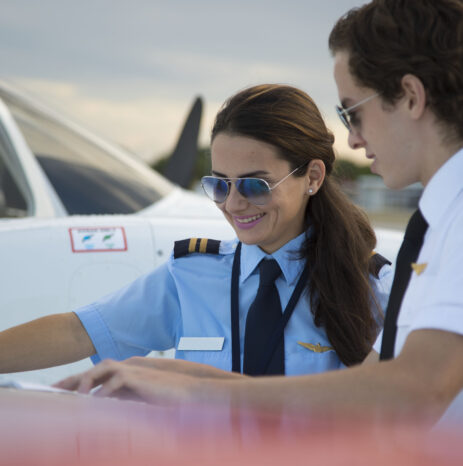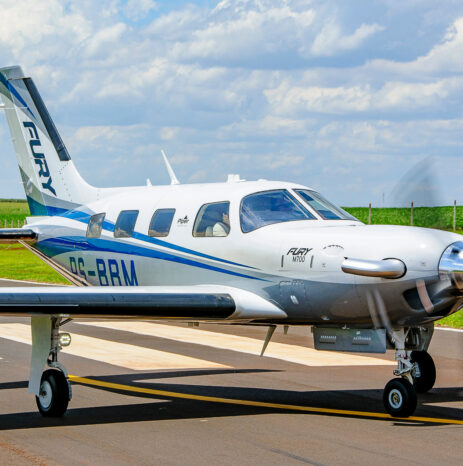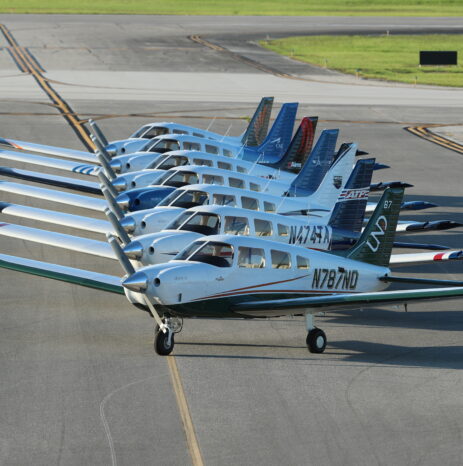“Should I become a pilot?” — If you’ve asked yourself this question before but weren’t sure where to start to find your answer, you’ve come to the right place. Read more to learn about what skills/training is required, the salary ranges to expect and more to help you determine if a career in aviation is right for you.
Ready to test yourself? Take our pilot quiz now!
Why Become a Pilot?
In addition to having a love for flying and a passion for aviation, the reason you might consider becoming a pilot is that it’s an important role to hire for these days. With airline travel on the rise, it’s a great time to get into the aviation industry — especially as a pilot. Demand for pilots is projected to rise 6% from 2021 to 2031, with CAE forecasting that around 255,000 new pilots will be needed over the next ten years, both to fill the roles of retiring pilots and to match the growth of the airline industry.
How Much Do Pilots Make?
As of May 2021, commercial pilots earned a median annual wage of $99,640, with the highest 10% of earners making more than $205,940 each year. The post-pandemic demand for pilots means more and more employers are offering competitive wages, benefits and bonuses for new hires, including health and life insurance, retirement plans and, of course, flight benefits.
When it comes to wages and benefits, seniority is one of the biggest factors at play. Most pilots begin their careers as first officers and work their way up. The most established and experienced pilots earn higher pay and enjoy additional benefits, such as greater schedule flexibility — which means that the sooner you start your journey to becoming a pilot, the sooner you’ll be able to enjoy the greatest benefits.
![Do You Know What It Takes to Be a Pilot? [Quiz] 2 A commercial airline pilot walking through an airport](https://www.piper.com/wp-content/uploads/2022/10/AdobeStock_189196199-1.jpeg)
How Do I Become a Pilot?
All pilots must complete flight training with an FAA-certified flight instructor or at a flight school before they can earn their wings.
According to the Bureau of Labor Statistics, most pilots earn their certifications in the following order:
- • Student pilot certificate
- • Private pilot certificate
- • Instrument rating
- • Commercial pilot certificate
- • Multi-engine rating
- • Certified flight instructor (if desired)
- • Certified flight instructor – Instrument (if desired)
- • Airline transport pilot certificate
To earn each certificate or rating, you must pass a written knowledge test along with a practical flying exam or “checkride”. Some employers may prefer you to have a bachelor’s degree, with some schools offering the opportunity to earn an FAA certification and college degree simultaneously. Many student pilots opt to major in aerospace engineering or aviation science and technology, but no one degree specialization is required.
Read More – How to Become a Pilot: Learn if Aviation is the Right Career for You
![Do You Know What It Takes to Be a Pilot? [Quiz] 3 Elle Taylor, a Piper Brand Ambassador and flight student in a Piper trainer](https://www.piper.com/wp-content/uploads/2022/10/Screen-Shot-2022-10-14-at-4.02.44-PM.png)
What Skills Are Needed to Become a Pilot?
What does it take to be a pilot? To be a successful pilot, it’s not enough to just go through the motions of flying. Pilots need a strong balance of technical skills, including knowledge of operating various aircraft types, as well as soft skills like effective communication, patience and problem-solving under pressure. Situational awareness is essential — you need to be able to process changing circumstances and respond quickly and safely to any situation.
Think you have what it takes to be a pilot?
Take our quiz below to test both your aviation knowledge and soft skills!
![Do You Know What It Takes to Be a Pilot? [Quiz] 1 A pilot preparing a Piper aircraft for takeoff](https://www.piper.com/wp-content/uploads/2022/05/image2.png)



